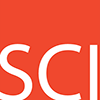As policy leaders around the world type out their to-do lists for the coming year, the issues that need confronting are as daunting as ever—economic growth, poverty, equality, health, climate change. Still, many have argued that yet another issue should be added to this list, and as quicky as possible: the rapid spread of misinformation and disinformation that is affecting societies everywhere.
This surging tide of fake news is growing and its impacts are increasing—from anti-vaccine rhetoric to political lies to climate change denialism and beyond. Some of this malicious information is state-sponsored. Some comes from hate groups. Some of it is snake oil being peddled by opportunists with an axe to grind or a product to sell. And some of it comes from us—ordinary citizens who unwittingly make all this happen by getting so worked up about the lies we read that we forward them to friends and family.
Researchers point to several possible reasons for our culpability. The most important is the way social media algorithms amplify hate and conflict. This amplification works because humans are perception-driven beings who, even with the best of intentions, tend to reject information that doesn’t align with our identities or beliefs. We make up our minds before we see the facts. Governments, scammers, and hate groups everywhere have been exploiting this weakness to great effect, powered by the fact that gaslighting has become more effective in the internet age than ever before—simply insisting, long enough and frequently enough, that truth is lie and lie is truth, until eventually, people question their judgement and recollections, or get lost in a forest of false equivalencies and are unable to distinguish fact from fiction.
Reality under these conditions can become entirely relative, and information denialism can provide safe harbor in a confusing and threatening world. We don’t just accept random falsehoods into our narrative; we build an entire scaffolding of alternative truth so our worldviews have some coherent structure. At the extreme end of this practice, burning books, rewriting history, and jailing dissidents have been popular tools for helping build alternate realities.
Misunderstanding is also a factor in how this scaffolding gets built. In science, for instance, we are constantly bombarded with information that isn’t science at all—science diets, pseudo-science explanations, fake science cures, and science-driven pet foods, exercise equipment, and more. All this noise dilutes our understanding of what real science is and does. In business lingo, science today is like a company that has lost control of its brand.
Misunderstanding can also mean deliberately twisting science to fit worldviews. In the late 1800s, Darwin’s research was twisted into the eugenics movement, which fed Hitler’s worldview of white supremacy. In the 1960s and 70s, cigarette manufacturers buried the science that connected smoking to cancer, which allowed smokers to construct a plausible deniability framework for continuing to smoke. In the late 1990s, Andrew Wakefield’s study showing a connection between vaccines and autism provided the proof that allowed anti-vaxxers to construct their particular worldview; the study’s retraction and mountains of evidence contradicting this study didn’t make a difference because we latch onto information that confirms our worldview, and tune out the rest.
Misunderstanding can also come out of complexity. Over the centuries, science has grown increasingly hard to comprehend, both because of its increasing complexity but also a gradual evolution in how science journals are written. In addition, the number of research articles being published has grown exponentially over the last few generations and continues to double every few years. Combined with the rapid decline of newspapers—science journalists have long served as intermediaries for all this knowledge—and the rapid rise of direct-to-the-public internet forms of research publishing that aren’t always the highest quality, the end result has been increased misinterpretation and misunderstanding of real science, at least among policy makers.
The irony in all this is that facts were originally invented by society as a direct result of evolving communication practices—the invention of the printing press—and today they are being destroyed as a result of these same evolving communication practices. Facts first started to bubble up in the 1500s and 1600s. Before then, everywhere, reality was whatever social leaders proclaimed it should be. In Western Europe, knowledge during this time was all about trying to rediscover everything Aristotle said was true, and making this fit the worldview promoted by the church.
The scientific revolution that started in Europe changed this attitude completely and worldwide over the course of a few hundred years. Rebel explorers and thinkers like Columbus, Copernicus, and Galileo refused to accept that truth was simply an invention, but instead insisted that objective truth existed, and that this truth needed to be proven and verified. These first “scientists” communicated with each other in print and in emerging scholarly societies, and they shared their “discoveries” (also a new term) with the world via books, pamphlets and journals due to the development of the printing press at around the same time. This discovery of truth itself—the discovery of facts—and its evolution over the centuries has arguably been the single most important development in human history.
Are we really willing to give all this up—a firm grasp of reality and all the advances we’ve made as a result—and retreat back into a dark world ruled by fear and ignorance? If not—if, in fact, we are willing to fight for a world where objective truth remains important—then a multi-pronged approach will be needed. At a personal level, we will need to listen more carefully to those who have felt threatened by the advance of knowledge, turn down the temperature of our disagreements, and make sure we treat each other with respect. Shouting at people who think differently than us has never convinced anyone of anything, only driven us farther into our corners.
This is a tall order when we are all surrounded by passionate advocates who spend more time demeaning each other from a distance than working together in person. Getting beyond this media-fueled rage and mistrust and learning to be more compassionate listeners and more accomplished compromisers will be a necessary first step in stopping our downward spiral and starting to rebuild a common framework for truth and action.
We’ll also need to work on becoming better judges of fact and fiction—more literate information consumers—and adopt tactics that can help thwart the spread of misinformation, like simply not sharing news links. As information consumers, we are far more thorough and discerning when it comes to reading product reviews than we are with verifying claims that Democrats lead a cabal of Satan-worshiping baby-eaters. We need to stop being played for saps by bad actors, and start treating the internet (and especially social media) for what it is—a cesspool of information that needs to be used with great care.
Since misinformation and disinformation doesn’t always start with people, though, and isn’t just limited to spreading fake news about baby eating, vaccines and climate change, international treaties will also be needed that penalize governments who use or support misinformation and disinformation campaigns; that require platforms like Facebook (and especially Facebook) to detect, label, and even remove fake news; and that strengthen our legitimate news organizations so they can continue to serve as trusted sources of information through these difficult times. We can’t do just one or the other—we need global policy efforts in addition to personal ownership of this issue.
The faster we can recognize misinformation and disinformation as a global problem that needs our urgent attention, and the more effectively we can work together on this issue across borders and perspectives, the more likely we’ll be able to protect the truth through this turbulent period in the history of the internet and into the future. The truth is out there. Let’s not let it slip away.
For additional reading, please see:

